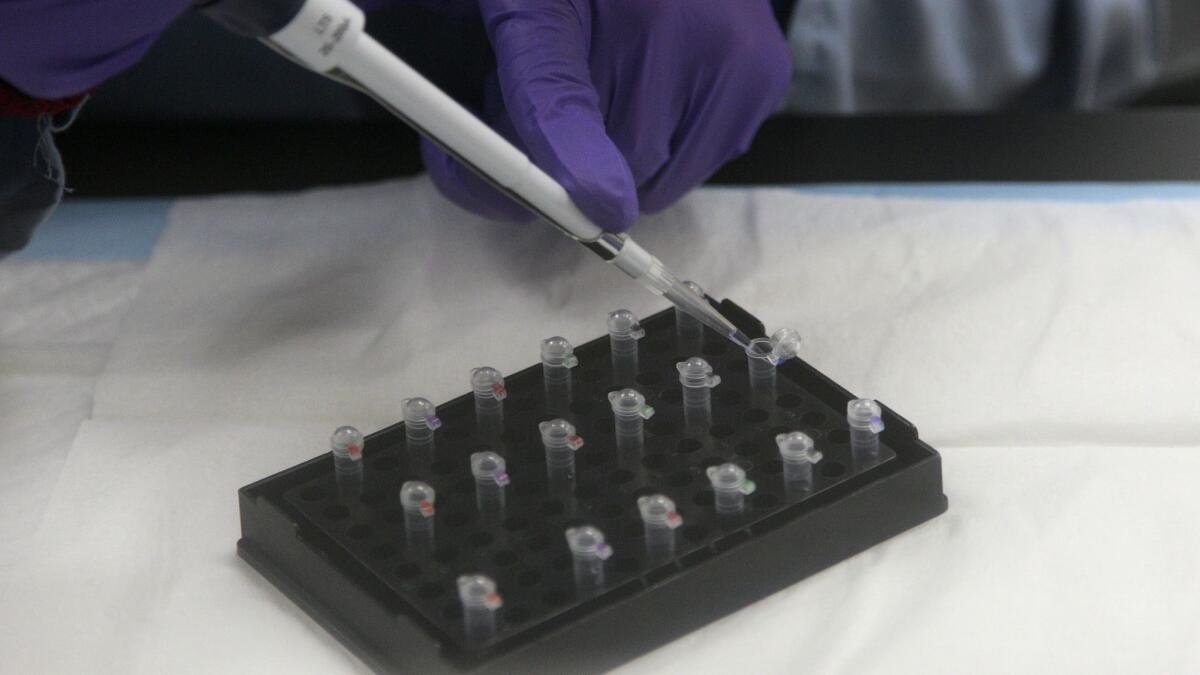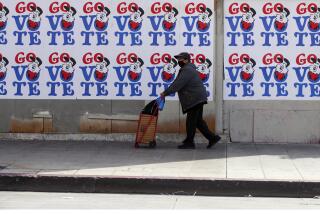Readers React: If you haven’t committed any crimes, why should you care about the state having your DNA?

- Share via
To the editor: The Times Editorial Board inveighs against the recent California Supreme Court decision that upholds the automatic collection and storage of DNA samples from arrestees. (“A DNA decision undermines Californians’ privacy and their presumption of innocence,” editorial, April 4)
A petition to expunge the genetic data is available to those who wish to opt out. The editorial board believes that this is a violation of the 4th Amendment and constitutes an invasion of privacy.
The likely outcome of requiring an opt out as opposed to automatic expungement of genetic data for non-convicted arrestees is that more criminals will be matched to banked genetic data and taken off the street. The downside, according to the board, is the compromise of the privacy rights of innocent individuals.
This seems a lofty position, but the reality is that no innocent person will experience an adverse outcome if he or she committed no crime. The societal benefit of convicting more felons outweighs any potential compromise of privacy that is more nominal than factual.
Stephen Levinson, Encino
..
To the editor: The editorial board opposes the California Supreme Court’s decision to reject a challenge to Proposition 69, which empowers the police to take DNA samples of anyone arrested for a felony, even if the arrest does not result in a conviction. The Times argued that this is “lumping the innocent in with the guilty.”
What is wrong with that? Why is the collection of DNA any more intrusive than collecting one’s fingerprint, which is done routinely? To the police, it serves the same function, and to the arrestee it should not matter as long as he or she does not commit crimes.
DNA evidence has proved to be an invaluable tool for law enforcement. It has solved cases that otherwise would have remained unsolved forever. It should be collected from anyone suspected of a crime, not just a felony.
Finn Sveen, Redlands
Follow the Opinion section on Twitter @latimesopinion and Facebook
More to Read
A cure for the common opinion
Get thought-provoking perspectives with our weekly newsletter.
You may occasionally receive promotional content from the Los Angeles Times.










